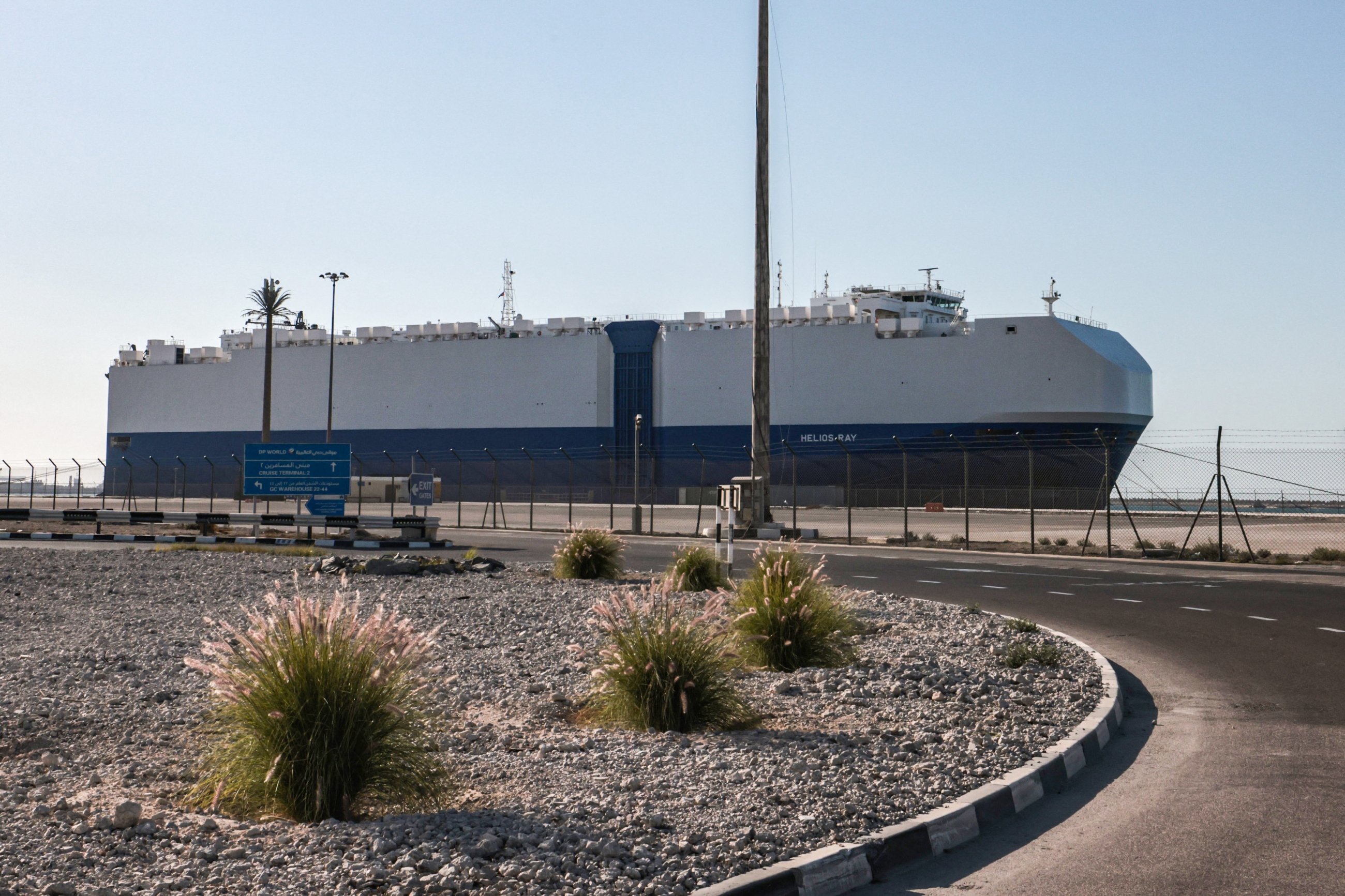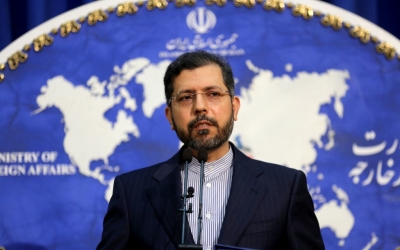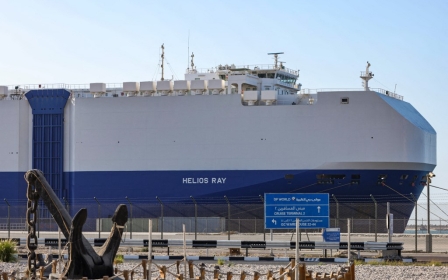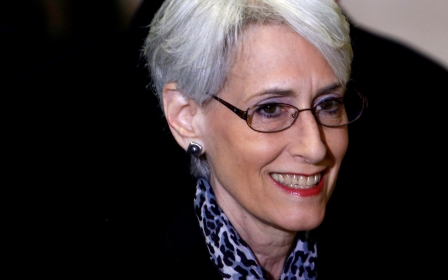Iranian press review: Conservative media says pro-Iran fighters were behind Israeli boat attack

Israeli ship blast was a response to Israeli air strikes say hardliners
A military alliance between Iran, the Lebanese Hezbollah and the Syrian army was behind an explosion aboard an Israeli-owned ship on 25 February in the Gulf of Oman, according to an Iranian conservative newspaper
The Kayhan daily, which has close ties to Iran's supreme leader, revealed that despite Iranian officials' rejection of any involvement in the blast, the "Axis of Resistance" carried out the attack.
'The incident in the Sea of Oman, regardless of who carried it out, was a highly professional operation that would disillusion the Zionist regime'
- Kayhan daily
The term Axis of Resistance has generally referred to the Shia forces fighting against Israel and the US in Iraq, Syria, Lebanon and Yemen.
"Wickedness in Syria and Iraq [was] responded [to] in Yemen and Oman Sea," the daily's headline read, claiming that the blast was a response to the US and Israel attacks on Iranian-backed forces in Syria and Iraq.
New MEE newsletter: Jerusalem Dispatch
Sign up to get the latest insights and analysis on Israel-Palestine, alongside Turkey Unpacked and other MEE newsletters
"A series of Israeli attacks on resistance forces in Iraq and Syria have deluded Israelis [about their power]," wrote the daily on 27 February.
"The incident in the Sea of Oman, regardless of who carried it out, was a highly professional operation that would disillusion the Zionist regime."
Meanwhile, Mashregh News, another conservative outlet, published an opinion piece by Iranian analyst Alireza Taghavi saying that the blast on the Israeli-owned ship was a warning to Israel, as well as the Gulf states that are seeking normalisation agreements with Tel Aviv.
"Following the Zionist regime's attacks on Resistance Forces in Syria, it was logical to expect a response," Taghavi wrote.
"Being recognised by some Arab states in the Persian Gulf would not earn legitimacy for Israel... and, sooner or later, those [states] collaborating with Israel would be punished," he added.
Rouhani fears Biden is killing time
An analyst has suggested that President Hassan Rouhani's administration has lost hope that a meaningful change in US policy toward Iran will occur during President Joe Biden's time in the White House.
During Biden's 2020 presidential campaign, he promised to abandon former President Donald Trump's maximum pressure policy on Iran. However, politicians in Iran are now worried that Biden has been purposely killing time to determine which political camp will win Iran's June presidential elections.
'They prefer not to reach an agreement with an administration that would be in power for only a few more months'
- Vahid Karimi, Iranian foreign policy analyst
In an interview with the Aftab daily, Vahid Karimi, an Iranian foreign policy analyst, said that a recent move by Biden's administration to introduce a new anti-Iran resolution to the UN board of governors of the International Atomic Energy Agency is a tactic to postpone the US return to the 2015 nuclear deal with Iran.
"The Democrats closely follow the developments regarding Iran's 2021 presidential elections," Karimi was quoted as saying by the Aftab.
"They prefer not to reach an agreement with an administration that would be in power for only a few more months."
Meanwhile, former Iranian legislator Heshmatollah Falahatpisheh suggested that Biden's strategy of killing time would put him in a more difficult situation after the next elections in Iran.
"If Biden keeps losing time, he would eventually find himself in a situation that there are no diplomats in Tehran to negotiate with," Felahatpisheh told the ISNA news agency.
He referred to Iran's Revolutionary Guard Corps (IRGC)'s recent attempt to support a military commander's candidacy in the elections.
"If this happens, Biden would have no choice other than negotiating with the language of the militaries, and that's what happened in Trump's era," he added.
School dropout rates increase
Experts have warned that Iran's deteriorating economic situation has caused a rapid increase in school dropout rates in the country, raising serious concerns about a sharp decline in the number of skilled workforces in the coming years.
According to local media, Iran's economic difficulties, which have been multiplied by the Covid-19 pandemic and US sanctions, have led to many schoolchildren leaving schools to help their parents make ends meet.
The Hamshahri daily has reported that due to the enormous number of students leaving school, officials have refused to reveal the country's exact number of total dropouts.
The daily revealed the data it accessed in a few Iranian provinces, showing that this year, in Kerman province, 4,510 students quit their studies in the first year of high school. During the same period, 3,677 seven-year-old children did not register in school at the beginning of the school year.
According to Hamshahri, 4,500 students in the oil-rich Khuzestan province, over 40,000 in Khorasan Razavi, and 10,055 in West Azerbaijan dropped out of school since September due to economic difficulties.
Since the beginning of the outbreak of coronavirus, schools have been closed in Iran, and distance learning through television and the internet has been the primary education mechanism. However, many Iranian families do not have internet access or cannot afford to buy a smartphone or tablet for their children to pursue their studies through virtual learning.
Last week, the ILNA news agency reported from one of Tehran's slums, where families do not even have access to a television to let their children follow classes broadcast for school children on state TV channels.
Middle East Eye delivers independent and unrivalled coverage and analysis of the Middle East, North Africa and beyond. To learn more about republishing this content and the associated fees, please fill out this form. More about MEE can be found here.





